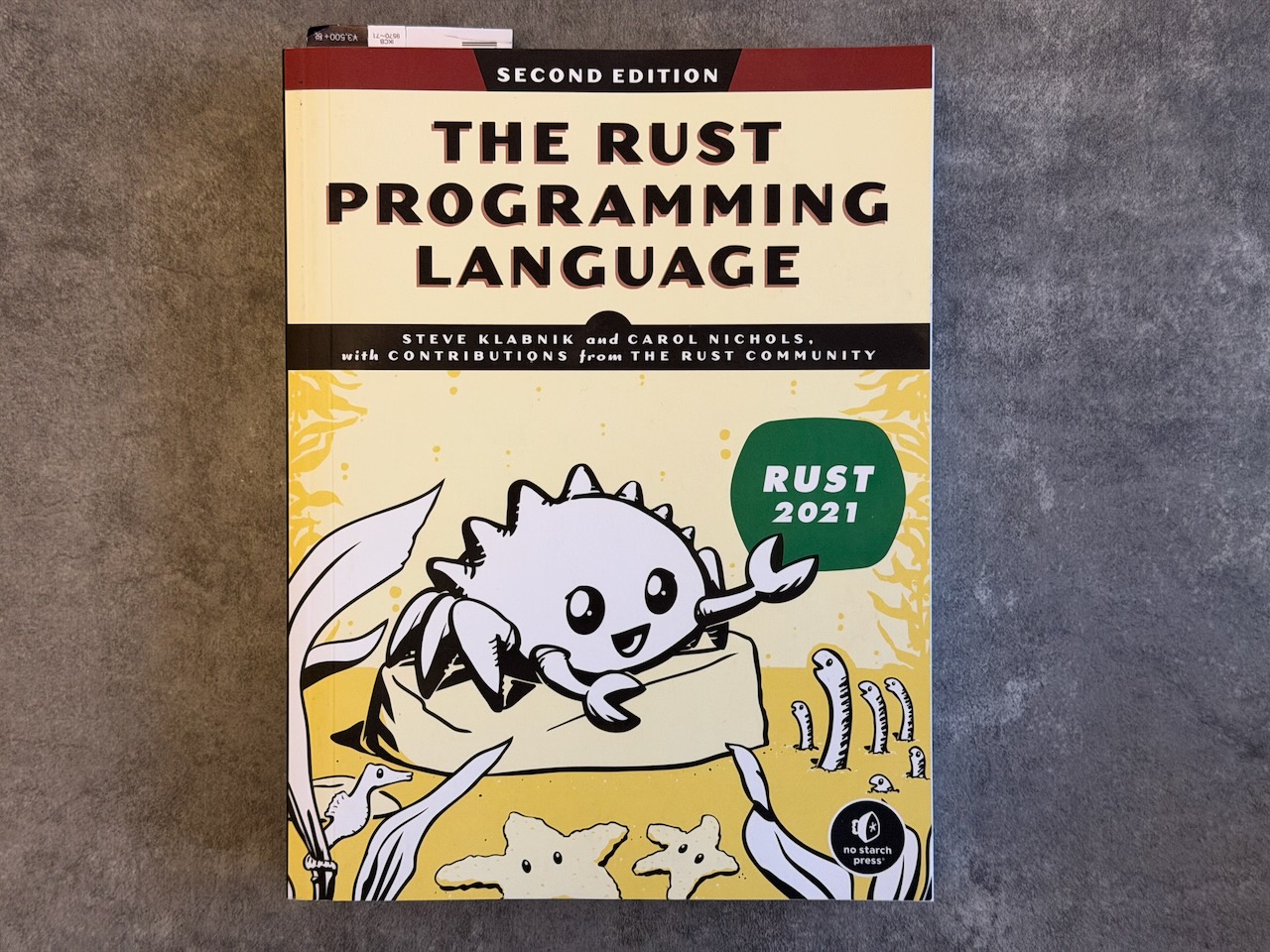Part of the “Rustober” series.
I like me a thick programming book: “The C++ Programming Language”, “Practical Common Lisp”, PAIP, even SICP to some extent — all have been enjoyable to read. However, I treat them like books, not like reference or an exercise book. I read through from beginning to the end, usually over just a few days, and then immediately start coding.
This works for me because reading the whole tome without stopping for most exercises (if they are in the book) answers a lot of the questions I have along the way. If I only looked at the basics and started writing code, I would miss the majority what the language makes available to me, or how to approach problems. I find that having a shallow, but broad understanding helps me write useful code sooner.
Rust has its own “K&R” and it’s aptly named “The Rust Book”. You can read it in full online for free, or buy a printed copy. The paper version is a nice large format that fits perfectly on your programming shelf :)

I can highly recommend the official Rust book. I’ve read it once in full online and now reading it a second time as a paper version. It’s well-paced, the topics build upon each other and it has a tendency to answer your questions soon after you have them. I have the 2021 (second) edition, and having seen the contents of the current online version, the next edition of the paper book that comes out in April will be even better. See the edition guide for differences.
It’s peculiar that a Rust book was the very first programming book that I willingly gave away. A couple of years ago I bought Luca Palmieri’s “From Zero to Production in Rust”. It had glowing reviews, but I didn’t like it so much that I didn’t finish. The content itself was OK, I was mostly annoyed by long repeated blocks of code with few line changes, and little text to explain them. I think the book could be significantly shorter with some editing.
There are a few more I’d like to read, particularly published by O’Reilly, but one was specifically recommended to me as very high quality: “Rust Atomics and Locks” by Mara Bos. I’ll definitely pick it up later when I’m more familiar with the language.